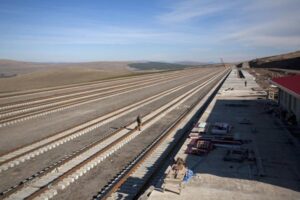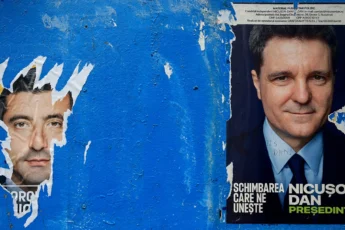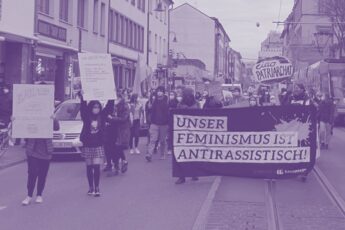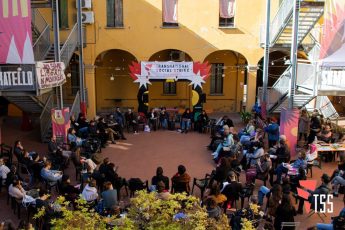
by TRANSNATIONAL SOCIAL STRIKE PLATFORM
- Read the program
- Read the call out in English
- Read the call out in Georgian
- Check out the Facebook event
The TSS meeting in Tbilisi, Georgia on 28th-30th June 2019 is the first assembly of the platform outside the borders of the EU. We are heading to Tbilisi while the city is shaken by an uprising, pointing directly to the Parliament. The reasons that sparked this wave of protests relate to a dissatisfaction with the government that takes the shape of offended national pride, while opposition parties feed on the anti-Russian sentiments present in the country. As TSS, beyond national pride and geopolitical interpretations, we see the necessity of assessing the current situation within a transnational framework, and we affirm that geopolitics and nationalist sentiments are increasingly used to cover the real nature of social conflict, in Georgia as elsewhere. In front of global capitalism, there is no other way for radical change than to recognize the transnational dimension we live in, beyond easy alternatives, and to build an autonomous perspective that finds enemies and allies for the interest of workers, men and women, citizens or migrants, and not of national representatives. In fact, what is clear is that this instrumentalization unites the supposed enemies: both neoliberals pro-West reformers and nationalist conservatives, both foreign interests and local supporters, aim at preventing workers’ discontent from turning into a transnational fight against exploitation, precarity and impoverishment. With this meeting, we address the need to frame the transnational dimension differently, also in order to cope with the issues that are hidden behind the protest in Tbilisi, and help building an autonomous political perspective.
We insisted since the beginning on the need to overcome the usual political maps of social and labor movements in order to grasp the transnational dimension we live in and within which we need to fight. This has brought us to pay particular attention to Eastern developments – since Eastern European countries have been a place of experimentation of neoliberal policies, industrial restructuring and precarization of labor for the past thirty years. The inclusion of these countries in European and global production chains, their integration in the EU and the mobility of labor have made this part of Europe crucial for any political project that aims at changing the present state of things. The same aim has taken us to the Balkans, following migrants’ movements after 2015 refugees’ ‘crisis’. Beyond the alternative between neoliberal or ‘social’ Europeanism, on the one hand, and nationalist anti-Europeanism, on the other, the TSS project sees Europe not as its exclusive horizon, but as the first transnational space of struggle. By heading to Georgia, the TSS adds other elements to the transnational collective force we need in order to confront the effects of logistical integration on labor and society and to cope with the ways in which they impact on the possibility to strike and organize.
After the crisis of 2008, the policies of privatization, precarization and welfare cuts that affected the East during the transition period spread to all European countries with heavy consequences on the capacity to struggle for better conditions. While considering the differences, we have discussed the common trends that link together Italy’s Jobs act, France’s Loi travail and Macron’s ordonnances, the law against the strike in Sweden, Hartz IV in Germany, and the several attacks to grass root unions. We have detected how welfare cuts are a reality in every European country and pose new questions on how to formulate our demands and address the State. We have denounced how anti-immigration political forces and institutional racism contribute in the structural exploitation of migrant labor, and how the anti-immigrant and nationalist discourse works to further precarize and keep labor under the yoke of employers and policy makers. In turn, increased mobility is one of the main forces used by workers to strike with their feet, change their condition and seek better salaries. We have taken part in women’s uprisings that in the last years radically contested the patriarchal pillars of production and social reproduction.
These changes went together with a fundamental shift in the way institutions and states work, with the increasing centrality of governments versus parliaments and the rise of nationalism. Also in this regard, what happened in the Eastern states of the enlarged EU was the sign of a general transformation. This does not imply that the EU is now a homogeneous space: on the contrary, EU logistical integration works by exploiting differences in economic and social conditions between countries. Now this exploitation is stretching beyond its institutional borders, to a farther East that helps balancing the political instability of Eastern Europe and provides new expectations on profits and cheap labor. In this direction, the transformations affecting Georgia as a post-soviet country and a crucial passageway between Europe and Asia, and the struggles erupting there pose us new questions and new challenges.
Since 2014 Georgia is connected with the EU through an Association Agreement that is telling of the way in which the ongoing European logistic integration is taking place and reveals the deep transformation of the EU as a political project. The Agreement contains a set of rules Georgia needs to adopt in order to have a privileged economic relationship with the EU. This Agreement is presented as the true promise of a better democratic future and the EU as a realm of rights and well-being ensuring a civilized and continuous progress, an alternative to the savagery of both the socialist past and the violent deregulation of the 1990s and early 2000s. Besides, Georgia is presented as an ideal gateway country between large markets, a potential reservoir of cheap labor and a perfect site for tourism industry. Consequently, all the efforts need to be concentrated on being ready for this uncertain prospect of integration, all the sacrifices are legitimized therefore. As a consequence, the Association Agreement is in reality used as a tool to discipline and calm down attempts to raise a voice on the conditions of integration and ‘development’, also in sectors that are not materially included into transnational circuits. The Agreement goes hand in hand with the attack to the right to strike and the political project to discipline repulsive workers. And this applies to all sectors, including public sector workers, transportation workers and service sector. As we saw elsewhere, and as the metro workers on strike in Tbilisi last year showed, the problem is how to practice the strike in changing conditions and overcome the legal constraints through which it is limited and made ineffective.

In Georgia the reality is far from the picture imagined by the EU and the Georgian state: the discontent against the project of turning the country into a ‘service-provider’ with no say and no power is indeed mounting in different forms. Different struggles are erupting despite the rhetoric on development and the attacks on living and labor conditions: from miners’ strikes to the protests against hydroelectric power plants devastating the country, from metro workers’, nurses’ and social service sector’s strikes to the women’s demonstration of March 8th. Each of these struggles is addressing different connected sides of the neoliberal attack that aims at turning Georgian workers, women and men, into exploitable and poor workforce at the mercy of investors, because this is the best they can get. But while this takes the shape of the submission to decisions taken elsewhere, Georgia, the Georgian state and Georgian capital are increasingly interwoven with global capitalism. Behind the struggle to secure influence, profits and leverage within the country, at stake there is the way in which Georgian labor and Georgian society are integrated in this global reality.
While the ongoing transformations are global, the forms of struggle and organizing remain largely sectorial, local or national. Fragmentation and differences block most attempts to politicize labor and social struggles beyond single issues. The question for us is thus how to practice this field of tension where, on the one side, there are struggles addressing different but related aspects of the ongoing transformation and, on the other, there is a fully-fledged integration of Georgia within the world market and transnational circuits of capital, investments and power. We think that this question is crucial both for the struggles within Georgia and for transnational struggles.
We also need to assess what the state can do in the present condition and what the state has done in order to contribute to this situation. The website ‘Invest in Georgia’ assures foreign investors willing to start a business in Georgia that «the average monthly salary amounts to 430$», including blue and white collars, and that «the country has quite a flexible Labor Code». As a matter of fact, «Georgia has one of the most liberal labor environments not only in the region, but globally». In the last decades, Georgian governments have insistently claimed to be transforming the country into a ‘business-friendly environment’ while operating to dismantle any labor right and, most importantly, any possible collective and autonomous power on the side of workers. While the post-soviet reality may suggest a withdrawal of the state from its responsibilities and a sell off of its capacities, the Georgian state is acting as a neoliberal state actively promoting the integration of Georgian labor and society within the world market. This emerges clearly by looking at last month’s miners’ strike in Chiatura, a big manganese extraction site. The miners have been asking for improved labor conditions and safety measures, involving the whole city in a social strike stopping any activity, from shops to schools and workplaces. In the struggle it was clear that workers are put under pressure by different agents: by the government, that considers the extraction site as a national resource to exploit in bargaining with foreign capital and in legitimizing its internal action; by foreign investors, who need to safeguard their investments; by speculators in raw materials markets; by the financial capital. While the government had taken control of the American-Ukrainian company managing the mine, it did nothing so far to improve the working conditions and to reduce the workload. The strike in Chiatura, where in the end the miners had their demands met, shows that the promises of development may take unexpected twists: workers and community revolted against working conditions and the environmental consequences of an economic activity that is at the same time a ‘strategic’ sector for Georgia and a testing ground for the type of its logistic integration in the world market.

Moreover, the Pankisi Valley has recently seen numerous protests against a hydropower plant meant to achieve energy autonomy. After the protests erupted, the government, while assuring a violent police repression through a criminal special operation, promised that it would better inform the population about the benefits of the plant and the employment possibilities it will originate. The local population knows, however, that while the construction of the plant might cause the hiring of around 80 people, after its completion only a handful will be hired for maintenance, while there will be irreversible environmental damages provoked by the overexploitation of soil and water. The same goes for the huge construction projects that are connected to the One Belt One Road initiative. Railways, highways and related infrastructures are being built throughout the country. Expropriations of land and damaging of natural resources are the normal backlash of these projects, while people are hired only provisionally for the actual construction, and then dismissed when it ends. This shows the need to connect the fight against exploitation and environmental degradation as different faces of the struggle against the construction of a ‘business friendly environment’. To practice the transnational dimension as a battlefield thus means to look for and create autonomous connections between struggles, even when these seem at odds: across different labor sectors and countries, that are supposedly divided by different working conditions, including the sexual division of labour, and wage levels; between those who remain in the country and those who migrate abroad; between productive and reproductive labour.
This means to recognize that the transnational dimension is already shaping working-class composition and the conditions under which labor is reproduced. As a matter of fact, the Georgian ‘labor asset’ is not limited to the jobs that are carried out within the country, but also abroad, due to the increasing labor mobility. In turn Georgian migration policies are fostering the employment of migrant workforce, so that, as the website ‘Invest in Georgia’ declares, «no working permits are required and citizens of 94 countries can stay in Georgia without visa for 1 whole year». This allowed, for instance, several Chinese companies building infrastructures in Georgia to directly employ Chinese workers. This is another aspect of transnational logistical integration: trading cheap workforce thanks to wage differentials often at the expense of those who are worse-off by unemployment, poverty and lack of social security, while at the same time fragmenting the labour market, differentiating working conditions and letting the employers have a free hand. The question is how to pursue a collective force behind differences and build political connections against national and contractual divisions.
This interconnection does not limit itself to the field of labor but extends to social reproduction. Even more than construction or factory workers employed abroad, the principal asset Georgia seems to be offering on the world market are women. More than half million women work in Europe as care or domestic workers. The remittances they send are a consistent part of the GDP, and often cover basic family needs. The care work done by women strengthens the sexual division of labor and connects Georgia to Western European countries. While women are employed, either as migrant wage workers or as unpaid reproductive labor, to fill the gaps of welfare, confirming that reproduction is a women’s burden, the privatization of welfare, in Georgia amounting to up to 90%, has made the service sector boom as a place of precarious and poorly paid work, specifically performed by women. It is not by chance then that the service sector has been in turn a place of struggle of nurses and social workers, protesting both against labor conditions and the related lack of services. Besides working in harsher conditions, the lack of welfare increases the load of reproductive labor and women need to be disciplined enough to endure this increased exploitation, at work and at home. Additionally, thanks to the almost complete deregulation of the surrogacy business and its competitive prices compared to other locations, Georgian women are among the first providers of wombs for the international market. This is yet another clear example of how the Georgian state is turning the country into a ‘business-friendly environment’, while being apparently ‘inexistent’ and weak. As the March 8th demonstrations show, a new global movement is contesting the interlacement between labor exploitation and the position women are forced to hold within society and along transnational reproductive chains. This shows another element of a transnational dimension where the very social reproduction is organized transnationally and requires a transnational response.
In search for common terrains of struggle that can politically connect dispersed forces, we recognize in the strike not simply a practice to be deployed within the workplaces, but a collective project connecting different forms of refusal of the neoliberal command. The transnational logistical integration is crisscrossed by conflicts, whose connection can be found when we grasp in all its width the entanglement between labor conditions and the overall conditions of reproduction of society, when we are able to find threads linking the conflicts investing institutional agreements, migration policies, deregulation of the reproductive market, sexual division of labor, mobility, extractive and infrastructural projects, in Georgia and elsewhere. It is only within the transnational dimension that we can develop a collective autonomous power that refuses to be a pawn in the hands of the rulers of the day.





